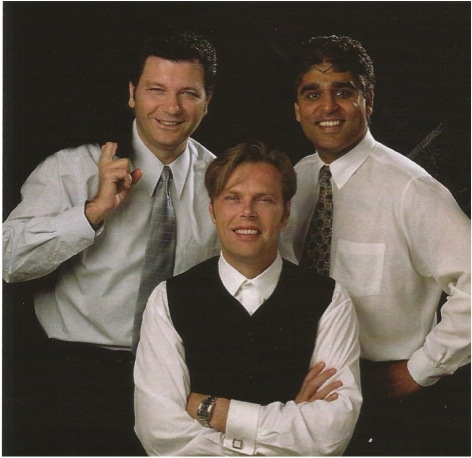
National Disability Employment Awareness Month
Are you aware that nearly one in seven Ontarians have a disability? That is 1.9 million people. Currently 70% of those individuals are looking for work, while close to 30% of Ontario’s small and medium-sized businesses have reported difficulties filling job vacancies. Despite this fact, employment barriers continue to persist as assumptions and myths about people with disabilities creates a narrative that they are an unqualified labour market.
This month is National Disability Employment Awareness Month (NDEAM). It was created to increase the awareness of the positive outcomes of hiring persons with disabilities. The month is dedicated to overcoming barriers to employment for people with disabilities, creating an inclusive hiring program, and ensuring resources are readily available to employers and job seekers.
In addition to designating October as NDEAM, earlier this year the Ontario government launched Access Talent. Access Talent is an employment strategy that offers tools and resources to connect more people with disabilities to jobs and more businesses to talent.
If every Ontario employer with 20 or more employees hires at least one more person with a disability, about 56,000 people would get jobs. Additionally, 30 per cent of the people with disabilities looking for work in Ontario would be able to apply their talents to our businesses and economy.
Here are some common myths that are responsible for contributing to the narrative that people with disabilities are an unqualified labour market:
MYTH: Employees with disabilities won’t do as good a job as other employees
FACT: 90% of people with disabilities rate average or better on job performance compared to their colleagues without disabilities
MYTH: People with disabilities represent a niche market companies can afford to ignore
FACT: Together with their families and loved ones, people with disabilities represent more than half our population with a buying power that tops $40 billion in Canada and $1 trillion globally
MYTH: Someone with a disability won’t be reliable and will miss a lot of work
FACT: 86% of people with disabilities rate average or better on attendance than their colleagues without disabilities
Below are some individuals who have made significant contributions with regards to disability employment awareness.
Anna-Karina Tabunar, Director of Corporate Affairs for Sodexo, is a seasoned communicator and the founder of “Talent Untapped,” a project focused on the value of the unconventional talent pool of people with disabilities.
Jim Kyte, former NHL player, restaurant franchise co-owner, newspaper columnist, noted motivational speaker and currently Dean of the School of Hospitality and Tourism at Algonquin College. Jim continues to be active in charitable causes, including co-founding the Canadian Hearing-Impaired Hockey Association and starting the Jim Kyte Hockey School for the Hearing Impaired.
The Hon. David C. Onley, 28th Lieutenant Governor of Ontario from 2007 – 2014. Prior to, David was the first television newscaster in Canada with a visible disability having worked as a journalist reporting for CityTV and CP24. He currently serves as Special Advisor on Accessibility to the Minister Responsible for Accessibility, The Hon. Tracy MacCharles and is Honorary Patron of Canadian Business SenseAbility.
Tracy MacCharles, Minister of Government and Consumer Services, as well as Minister Responsible for Accessibility. Tracy is the former Chair of the Ontario Accessibility Standards Advocacy Council and served on the Durham Board of Education’s Special Education Advisory Committee.
Thomas Merritt, professor and Canada Research Chair in the Laurentian University Department of Chemistry and Biochemistry and champion of accessible sports across Canada with ten years-experience hosting accessible rowing workshops.
Mark Wafer, former owner of six Tim Hortons restaurants in Toronto where he employed 46 people with disabilities in a workforce of 250. Mark is the co-founder of Canadian Business SenseAbility, Canada’s national strategy on disability employment, a member of the Federal Governments panel on marketplace opportunities for people with disabilities and is an advisor to many governments both in Canada and Internationally.
Rich Donovan, CEO of The Return on Disability Group is a globally recognized expert on the convergence of disability and corporate profitability. He’s spent ten years focused on defining and unlocking the economic value of the disability market. Rich is currently the Chair of Ontario’s Accessibility Standards Advisory Council.
Maayan Ziv, an activist, photographer, and entrepreneur in Toronto who is currently living with Muscular Dystrophy. She’s the founder of AccessNow, a crowdsourced app to map the accessibility status of locations worldwide.













